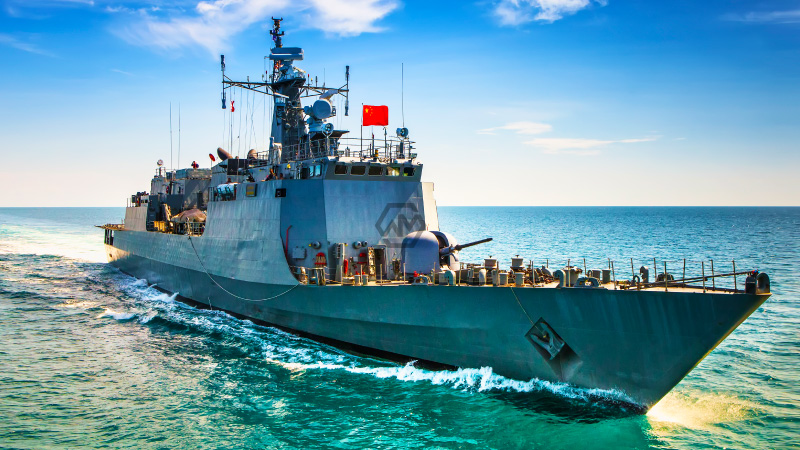- The 90-meter (300-foot) vessel is moored at the Colombo harbor where a Chinese state-run organization works a remote ocean terminal.
- A couple of Chinese submarines docked there in 2014, raising fights from India.
- There was no quick remark from either the Chinese or Indian conciliatory missions in Sri Lanka after Colombo allowed restricted endorsements to Shi Yan 6.
Sri Lanka has conceded 48 hours for a Chinese vessel to lead marine examination off the island’s west coast under oversight, the unfamiliar service said Sunday, notwithstanding Indian worries that it very well may be a covert operative boat.
Service representative Kapila Fonseka said Chinese examination transport Shi Yan 6, which has been in Colombo since Wednesday, would be permitted to do labor for two days beginning Monday.
Chinese Ship in the Indian Ocean
Prior, Sri Lanka permitted the vessel to enter the primary port of Colombo just for “renewals” over worries raised by adjoining India that the art could be utilized to spy against them.
New Delhi is dubious of China‘s rising presence in the Indian Sea and its impact in Sri Lanka, which is decisively positioned most of the way along key east-west global transportation courses.
A rocket following a Chinese vessel last year raised security worries from India, and Sri Lanka precluded it from undertaking any exploration exercises while in its waters.
Fonseka said neighborhood researchers will be locally available at Shi Yan 6 during two days of examination exercises along the western seaboard of the island.
Chinese state telecaster CGTN considers the Shi Yan 6 a “logical examination vessel” with a group of 60 to lead oceanography, geography, and marine biology tests.
Another Chinese exploration vessel, Yuan Wang 5, which works in shuttle following and which New Delhi portrayed as a covert operative boat, visited Sri Lanka last year.
It docked in Hambantota, a port in Sri Lanka’s south under a 99-year rent to the Chinese organization that fabricated it after Colombo couldn’t support a $1.4 billion credit taken for the task.
Sri Lanka defaulted on its $46 billion outside obligation last year in an exceptional monetary emergency mostly accused of Chinese advances used to assemble trinket foundation projects somewhere in the range of 2005 and 2015.



